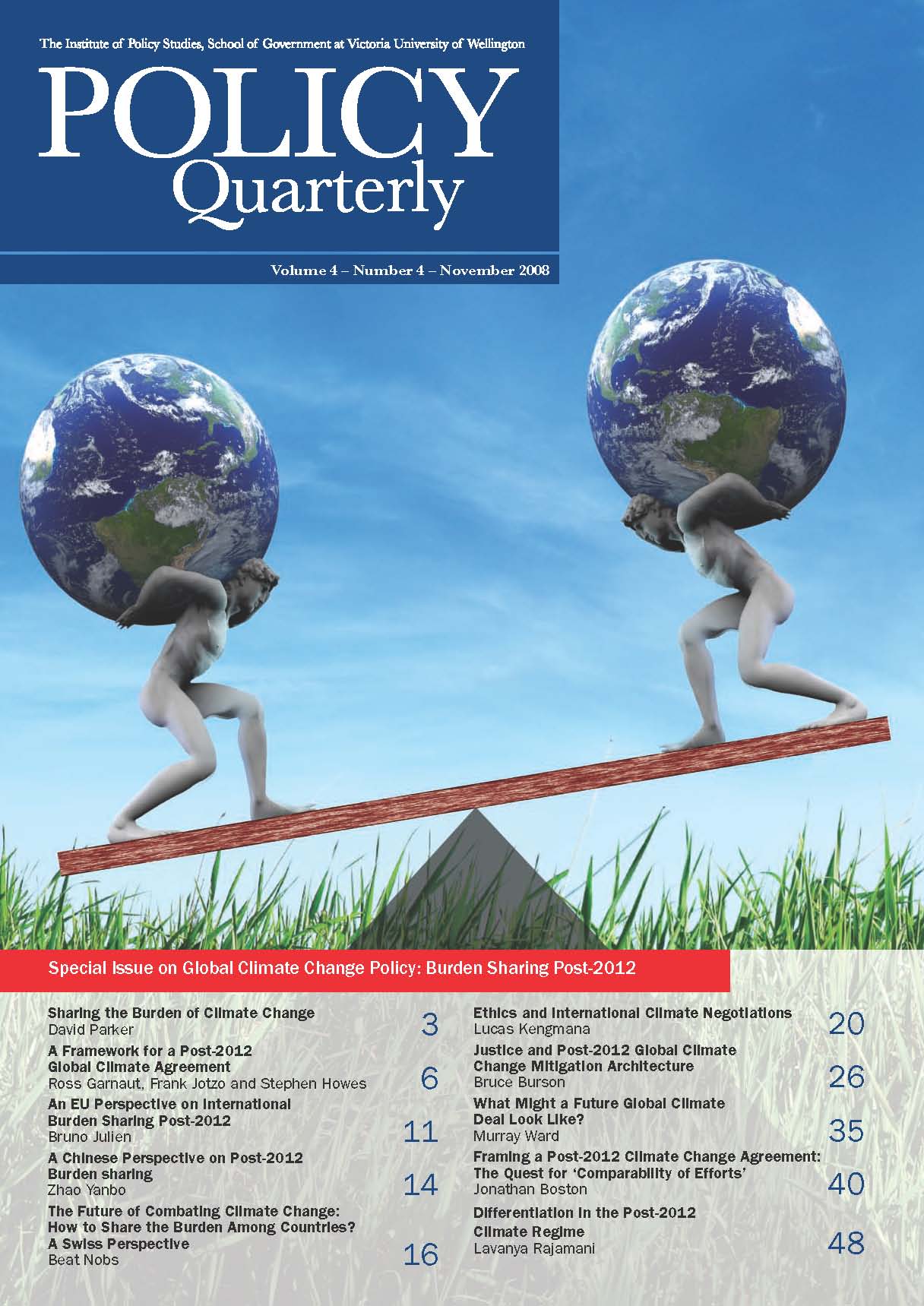Differentiation In the post-2012 climate regime
DOI:
https://doi.org/10.26686/pq.v4i4.4272Keywords:
Framework Convention on Climate Change (FCCC), Kyoto Protocol, Least Developed Countries (LDCs), Bali Action Plan, World Trade Organization (WTO)Abstract
Since the dawn of the intergovernmental dialogue on climate change, countries have bickered over who should take responsibility, in what measure and under what conditions to avert climate change. At the heart of these questions in the ongoing negotiations on the post-2012 climate regime is the notion of “differentiation.” The Framework Convention on Climate Change, 1992 (FCCC) and the Kyoto Protocol, 1997, differentiate between developing and industrialized countries, and assign a leadership role in mitigation to industrialized countries. Should the post-2012 climate regime differentiate between developing countries, based on “objective criterion,” in determining who, amongst them, should take greater responsibility, perhaps even akin to the responsibility that industrialized countries have currently assumed?
Downloads
Downloads
Published
Issue
Section
License
Permission: In the interest of promoting debate and wider dissemination, the IGPS encourages use of all or part of the articles appearing in PQ, where there is no element of commercial gain. Appropriate acknowledgement of both author and source should be made in all cases. Please direct requests for permission to reprint articles from this publication to Policy-Quarterly@vuw.ac.nz.



